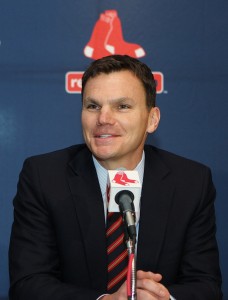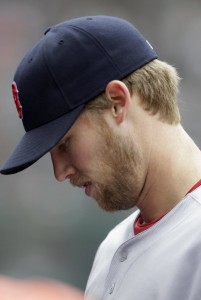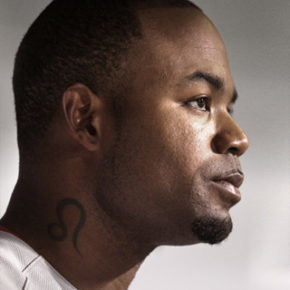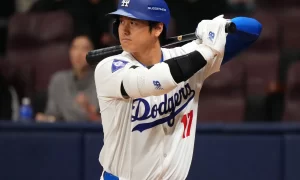All rise, court is now in session. On the docket today: Crawford and Bard vs. Fenway Sports Group (formerly New England Sports Ventures). The plaintiffs allege gross negligence on the part of the defendants and their subsidiaries, resulting in a prolonged inability to work.
 The evidence will show that due to the obdurate manner in which the defendants perpetuated their cruel experimentation with the very core of Bard’s livelihood, and the desperate, if not frantic fashion they went about diagnosing and rehabilitating Crawford’s various, preventable physical ailments, the ability of both men to succeed at their job was retarded or prevented for a protracted period. Further, evidence will demonstrate that in the case of both men, their future earning power was diluted at the hands of the defendants. Not since the abolition of the Reserve Clause have two players been treated more like pawns–or meat–than have Carl Crawford and Daniel Bard this season.
The evidence will show that due to the obdurate manner in which the defendants perpetuated their cruel experimentation with the very core of Bard’s livelihood, and the desperate, if not frantic fashion they went about diagnosing and rehabilitating Crawford’s various, preventable physical ailments, the ability of both men to succeed at their job was retarded or prevented for a protracted period. Further, evidence will demonstrate that in the case of both men, their future earning power was diluted at the hands of the defendants. Not since the abolition of the Reserve Clause have two players been treated more like pawns–or meat–than have Carl Crawford and Daniel Bard this season.
Bard was a rare bright spot in a 2011 campaign marred by The Collapse. He was a contributor to the September spiral, to be sure, but not to the ‘toxic clubhouse’ about which so much ado has been made. Statistically the year was a huge success. Despite a 10.64 September ERA, he finished with a 3.33 mark while striking out a batter per inning over an impressive 74 frames. Then the off season came and the embattled Jonathan Papelbon–the only thing standing between Bard and the long-awaited closer’s role–signed elsewhere. With regards to the vacancy at the back end of the pen, no official statement came for quite a while, and Boston waited with bated breath.
And then, the inexplicable happened: General Manager Ben Cherington traded for the perpetually-injured Andrew Baily to close, and announced that Bard, the heir-apparent, would transition back into the rotation, a role he pitched himself out of early in his career. Bard was groomed for one job, and suddenly assigned another. The sprint horse was led to water, but just  as it bent to drink, it was told to go train for an endurance race.
as it bent to drink, it was told to go train for an endurance race.
Train he did. Bard altered his conditioning, mechanics and his mindset in order to become a starter once again. By the middle of Spring Training, it was apparent that the same issues that plagued him as a young starter had not dissipated with age. After three starts his ERA was 7.11 and he’d walked 10 in 12.2 innings. Meanwhile, experienced starter Alfredo Aceves had one terrible outing in the Spring, but surrendered just two runs in the rest of his starts combined. At this point, the decision should have been clear: Aceves to the rotation, Bard to his former role as a lock-down setup man.
But if the numbers weren’t enough, the baseball gods delivered an even clearer sign. Andrew Bailey–as he is wont to do–went down with a thumb injury requiring surgery. The writing appeared to be all over the wall. Even manager Bobby Valentine made it as clear as he could that he felt Bard’s role was in the bullpen, not the rotation. But the front office plodded on, staying the course, and mandating Bard take the mound every fifth day.
Predictably, he struggled–mightily. When he was sent to AAA Pawtucket on June 5th, Bard had a 5.24 ERA, a 5-6 record, and more walks (37) than strikeouts (34) in just 55 innings. He remains in AAA, and the consequences of the experiment are salient: 8.16 ERA, 14 IP and 10 BB.
Crawford ‘s claim is slightly more nuanced. There are more chapters to the story and more room to blame the player, but the position in which he finds himself now is no less the fault of the organization than is Bard’s. After a dismal (and injury-plagued) debut tilt with the Red Sox, the team announced that Crawford had been suffering from a wrist injury all year, and would undergo relatively minor offseason surgery. Of the upmost significance here is the timing. Crawford’s ailment and surgery were announced in Januray, a full three months into the offseason. By waiting that long to diagnose the issue and come to a decision about surgery, the organization truncated the timeline for rehabilitation.
With a January surgery, Crawford’s rehab was rushed to have him ready for opening day. Amidst that rush, failure to adequately monitor his exertion resulted in a sore left elbow. That was quickly revealed to be a sprain of the dreaded ulnar collateral ligament. This is where things get worse.
The ulnar collateral ligament (UCL) almost always means Tommy John surgery, later if not sooner. (Diasuke Matsuzaka’s journey from sprained UCL to Tommy John is one fresh, Red Sox-related example. Kyle Drabek of the Blue Jays is even more recent. The list is virtually endless.) Crawford himself recently stated that offseason surgery is likely, yet on he presses to return to the lineup. (So much is he pressing, he recently suffered a groin injury on a minor league assignment. For a player so reliant on speed, any trauma to the lower half is perhaps as scary as the prospect of Tommy John.)
 In a season that is essentially lost, the decision to have Crawford play out the year is assinine. I’m usually loath to write off any team at the All-Star Break, but as it stands now, the Sox are 3 games out of the second Wild Card spot and virtually every other team is playing better baseball. If things were close and an infusion of speed were the missing ingredient, one could understand the move. But things are not close, and with a sore UCL Crawford will be nowhere near the player he can be even if his groin heals well.
In a season that is essentially lost, the decision to have Crawford play out the year is assinine. I’m usually loath to write off any team at the All-Star Break, but as it stands now, the Sox are 3 games out of the second Wild Card spot and virtually every other team is playing better baseball. If things were close and an infusion of speed were the missing ingredient, one could understand the move. But things are not close, and with a sore UCL Crawford will be nowhere near the player he can be even if his groin heals well.
By asking him to play out the year with his various health issues, the Red Sox are effectively guaranteeing that their $142 million outfielder will not productively contribute until early in the 2014 season. And that’s assuming full and timely recovery, which at this juncture is far from a given.
Both Carl Crawford and Daniel Bard fell victim to a changing of the guard. Theo Epstein drafted Bard and maneuvered him through the system; Crawford was his most expensive acquisition. But to Ben Cherington, they were simply opportunities. Opportunities to gamble, to take a chance. Maybe he would hit it big, and succeed where his mentor failed. And since he failed, he had lemons; he tried to make lemonade and it was sour. Those are the laurels upon which the Boston GM is resting these days. If there’s a winner in this debacle, it’s Ben Cherington. He hasn’t bourn much scrutiny in the media, Valentine and Bard have taken much of the heat for the failed conversion, and Crawford is routinely referred to as Epstein’s worst signing.
Ben Cherington is walking around Kenmore Square with an air of smug invincibility as a reeling fan base watches another season slip away, and two promising athletes wonder if they’ll ever get their edge back.
–Ari Glantz














